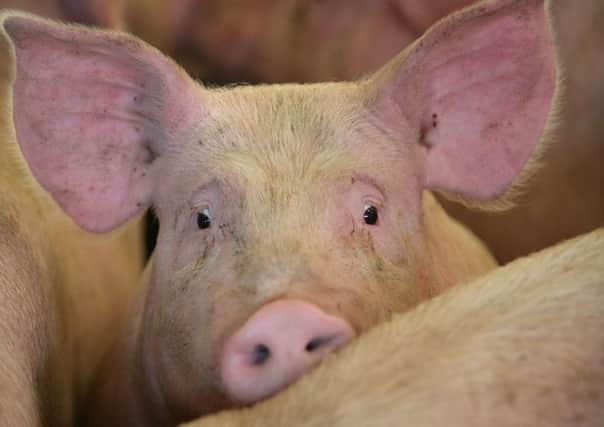Helen Martin: Animals are sentient, it's humans who can be the brutes


Uproar swamped social media, forcing the Tories to announce not only did they accept animals are sentient and have feelings, and also to insist the UK has higher welfare standards than the EU and that they plan better legal procedures to ensure those standards.
Once again, it’s all about Brexit. We all know animals have feelings and emotions. As a child on a farm I held pillows against my ears to blot out the agonising, tragic bellows of cows and their calves being separated. The Tories must stick to their claimed principles and pledges.
Advertisement
Hide AdAdvertisement
Hide AdLeaving that to one side for the moment, it’s often the intelligence of creatures that surprises humans – especially when they outfox us.
This year the invasion of little fruit flies, especially in kitchens, has been widespread. It’s been blamed on everything from climate change to council-issued waste food caddies. And getting rid of the clever little pests is no easy matter.
Throughout summer, dozens of them perched on our pulley like chickens on a roost, when they weren’t flying about in little clouds. I draped sticky tape with dods of jam on it round the struts, but they ignored it and sat smugly on the wood.
Occasionally they would dive bomb into my wine glass and drown. I baited them with an extra glass of Pinot Grigio dregs on a worktop well away from the table. One fell for it, but the rest seemed to know it was a trap, gave it a wide berth and plopped into mine. Eventually I realised that because I kept removing the corpses from my glass, they kept coming. It was the deceased floater in the other glass that warned them off.
Advertisement
Hide AdAdvertisement
Hide AdWe made sure the food scraps caddie was firmly shut. Yet every time we opened it to chuck in another tea bag or potato peel, a new batch flew out, as if by magic. The caddie was placed outside the back door and the numbers dwindled – providing we remained hermetically sealed with the windows shut.
They can’t be squashed or swatted by a slow-mo human. They’re just too fast. It was October before they seemed to die off but apparently, they are still flourishing down south where temperatures are higher.
Recently published facts reveal that these smart little critters share 60 per cent of human DNA and 75 per cent of the genes that cause human conditions such as autism and diabetes. Their tiny brains work faster than ours and they learn and take decisions.
Compare an insect to a cow, a sheep or a pig and it becomes pretty obvious – even to a Westminster Tory – that all animals are uber-sentient and deserve welfare protection, especially those we rear to eat.
Advertisement
Hide AdAdvertisement
Hide AdAs far back as World War One, my granny insisted only she should kill one of her free-range chickens. They knew and trusted her as their carer and feeder and had no panic when she lifted them up. A sharp flick of her wrists and they were gone before they knew it, out of sight of the rest of the brood. Modern farming, automation, bulk slaughter and processing have changed. Animals’ feelings have not. Without strong welfare regulations, we are mere brutes.